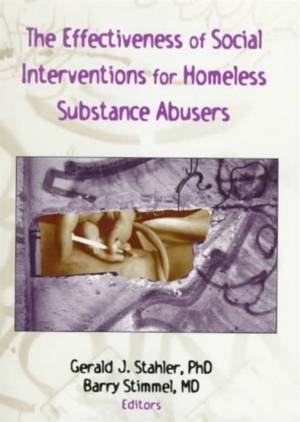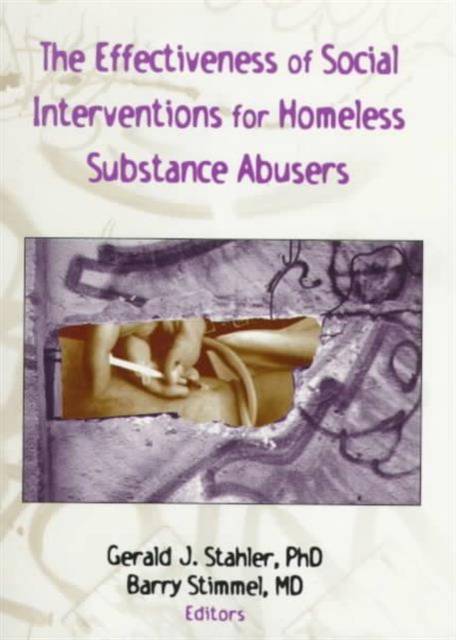
- Afhalen na 1 uur in een winkel met voorraad
- Gratis thuislevering in België
- Ruim aanbod met 7 miljoen producten
- Afhalen na 1 uur in een winkel met voorraad
- Gratis thuislevering in België
- Ruim aanbod met 7 miljoen producten
The Effectiveness of Social Interventions for Homeless Substance Abusers
Gerald Stahler, Barry StimmelOmschrijving
The Effectiveness of Social Interventions for Homeless Substance Abusers helps substance abuse treatment providers develop and evaluate more responsive treatment models for serving homeless individuals with substance abuse problems. Research presented in this volume was funded by the National Institute of Alcohol Abuse and Alcoholism (NIAAA) and the National Institute of Drug Abuse (NIDA). The book is devoted exclusively to reporting the results of this rigorous research concerning substance abuse treatment outcomes for homeless persons. While there is no single characteristic that distinguishes the homeless from other people (other than their lacking a permanent residence), they do represent a special challenge to substance abuse treatment providers because of their residential instability; poor economic and employment status; and their social disaffiliation in lacking personal supports and linkages with family, friends, and community institutions. In many cases homeless persons are difficult to treat because they have problems in establishing relationships with treatment providers, are extremely mobile (which can preclude continuity of care), present a multiplicity of needs, often have coexisting mental disorders, and are frequently viewed by service providers as not being "desirable" or "good" patients.Contributors to The Effectiveness of Social Interventions for Homeless Substance Abusers rigorously assess the effectiveness of various extended interventions for homeless persons with alcohol and/or other drug problems. Chapters show substance abuse treatment providers how to best serve homeless persons with substance abuse problems by addressing three vital areas in the field of substance abuse outcome research:
- evaluations of treatment outcome effectiveness
- dosage effects of services
- client characteristic predictors of successful treatment Homeless individuals who enter treatment programs for their substance abuse problems also come with a multiplicity of other problems which further complicates their clinical picture. Because of these concomitant problems and characteristics, they represent one of the greatest challenges to substance abuse treatment providers. The Effectiveness of Social Interventions for Homeless Substance Abusers shows substance abuse treatment providers how to meet the challenge to develop treatment programs that focus not only on the addiction but also address the tangible needs of the homeless, most notably housing, income support, and employment.
Specificaties
Betrokkenen
- Auteur(s):
- Uitgeverij:
Inhoud
- Aantal bladzijden:
- 234
- Taal:
- Engels
- Reeks:
Eigenschappen
- Productcode (EAN):
- 9780789002129
- Verschijningsdatum:
- 18/04/1997
- Uitvoering:
- Paperback
- Formaat:
- Trade paperback (VS)
- Afmetingen:
- 165 mm x 212 mm
- Gewicht:
- 362 g

Alleen bij Standaard Boekhandel
Beoordelingen
We publiceren alleen reviews die voldoen aan de voorwaarden voor reviews. Bekijk onze voorwaarden voor reviews.












